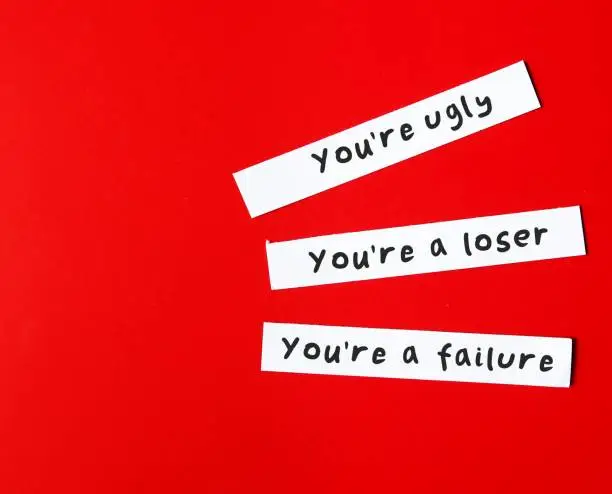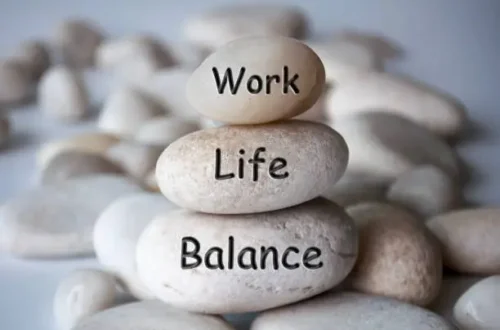Criticism. It can feel like a punch to the gut sometimes, right? Whether it’s from your boss, friends, family, or even strangers online, hearing negative feedback can shake anyone’s confidence. But here’s the good news: criticism doesn’t have to be a confidence killer. In fact, when handled the right way, it can be one of the most powerful tools for growth and self-improvement.
So, how do you handle criticism without letting it bring you down? How can you stay confident even when people point out your flaws? Let’s dive deep into this, step by step, and uncover practical strategies to keep your head high and your confidence intact.
Understanding Criticism: What It Really Means
Before you can deal with criticism, you need to understand what it truly is. Not all criticism is created equal.
Constructive vs Destructive Criticism
Constructive criticism is feedback aimed at helping you improve. It’s specific, actionable, and often delivered respectfully. Think of a coach telling an athlete how to improve their technique.
On the flip side, destructive criticism is negative feedback meant to tear you down, often vague and hurtful. It might come with insults or sarcasm and leaves you feeling worse.
Why People Criticize
People criticize for many reasons: sometimes to help, sometimes out of jealousy, insecurity, or misunderstanding. Recognizing the intention behind the words can help you decide how seriously to take the feedback.
The Psychology Behind Criticism and Confidence
How does criticism affect your mind? And why is confidence so important?
How Criticism Affects Your Mind
Criticism can trigger your brain’s natural fight-or-flight response. Your mind might jump to self-doubt, shame, or anger — all normal reactions.
Confidence: The Key to Emotional Resilience
Confidence acts like a mental shield. When you believe in yourself, criticism is less likely to harm your emotional well-being. It helps you bounce back quicker and see feedback as an opportunity rather than a threat.
Common Reactions to Criticism and Why They Happen
Have you ever snapped back defensively or felt crushed after criticism? You’re not alone.
Defensive Reactions
When you hear criticism, your first instinct might be to defend yourself. That’s your ego trying to protect itself from perceived attack.
Internalizing Negative Feedback
Sometimes, we let criticism sink too deep, leading to self-doubt and lower self-esteem. Understanding why you do this is the first step to stopping it.
Steps to Handle Criticism Effectively
Here’s the practical stuff. How do you actually deal with criticism when it comes?
Listen Carefully Without Interrupting
Let the person finish. Interrupting might make you miss important points and escalates tension.
Ask Clarifying Questions
If something isn’t clear, ask for examples or suggestions. This shows you’re open and can help turn vague criticism into useful advice.
How to Separate Useful Criticism from Noise
Not all criticism deserves your energy.
Identifying Constructive Feedback
Look for specific, respectful comments aimed at improvement. These are gems you can learn from.
Ignoring Toxic Comments
Some feedback is just noise — unhelpful, harsh, or mean-spirited. Protect your mental space by tuning these out.
Building a Healthy Mindset to Boost Confidence
How you think about yourself shapes how you handle criticism.
Practicing Self-Compassion
Be kind to yourself. Everyone makes mistakes; it’s part of being human.
Affirmations and Positive Self-Talk
Replace negative thoughts with positive ones. Say things like “I am capable” or “I learn and grow every day.”
Using Criticism as a Tool for Growth
Flip the script: criticism isn’t the enemy; it’s your growth partner.
Turning Feedback Into Action
Write down the feedback and create an action plan. This helps you move from feeling hurt to feeling empowered.
Celebrating Small Improvements
Every step forward counts. Celebrate your progress, no matter how small.
Practical Techniques to Stay Calm and Confident During Criticism
Feeling overwhelmed? Try these tricks.
Deep Breathing and Mindfulness
Take slow, deep breaths to calm your nervous system. Mindfulness helps keep you present.
Visualization and Mental Rehearsal
Picture yourself handling criticism with grace and confidence. It’s like mental practice for real life.
How to Respond to Criticism Gracefully
Responding well can actually boost your respect and confidence.
Thanking the Critic
Even if the feedback stings, a simple “Thank you for your input” shows maturity.
Offering Your Perspective Without Defensiveness
If you disagree, calmly explain your view. Keep the tone respectful and open.
The Role of Support Systems in Managing Criticism
You don’t have to go it alone.
Friends and Mentors
Trusted people can offer perspective, encouragement, and advice.
Professional Help When Needed
If criticism really knocks your confidence, talking to a coach or therapist can help rebuild your self-esteem.
Avoiding Overthinking and Negative Self-Talk
One of the biggest traps is replaying criticism over and over.
Recognizing Cognitive Distortions
Notice when your mind jumps to extremes like “I’m a failure” or “Everyone hates me.” These are distortions, not facts.
Techniques to Redirect Your Thoughts
Distract yourself with activities you love, journal your feelings, or practice gratitude to shift focus.
Maintaining Confidence in the Face of Persistent Criticism
What if criticism keeps coming? Here’s how to stay strong.
Building Emotional Armor
Develop habits like meditation, exercise, and positive affirmations to toughen your emotional resilience.
Setting Boundaries with Critics
It’s okay to limit contact or block toxic people. Protect your peace.
Learning from Famous Examples: How Public Figures Handle Criticism
Even the biggest stars face criticism — and handle it like pros.
Oprah Winfrey’s Approach
Oprah often talks about the importance of self-worth and tuning out negativity.
Elon Musk’s Thick Skin
Musk receives heavy criticism online but keeps pushing forward, showing how confidence fuels persistence.
How to Cultivate Self-Confidence Daily
Confidence isn’t just a feeling; it’s a habit.
Daily Habits That Build Confidence
Practice gratitude, set small goals, and take care of your body.
The Power of Small Wins
Every completed task, no matter how small, adds to your confidence bank.
Conclusion: Embrace Criticism, Protect Your Confidence
Criticism isn’t the enemy — it’s a signal, a chance to grow, and a test of your confidence. By learning how to listen, filter, and respond to criticism with grace, you not only protect your confidence but build it stronger than ever. Remember, confidence isn’t about never hearing negative feedback — it’s about not letting it break you.
FAQs About Handling Criticism and Confidence
Q1: How do I know if criticism is constructive or destructive?
Look for specific, respectful feedback aimed at improvement. Vague, personal attacks are usually destructive.
Q2: What if I feel overwhelmed by criticism?
Practice deep breathing, take breaks, and talk to supportive friends or professionals.
Q3: Can ignoring some criticism be a good thing?
Absolutely! Not all criticism deserves your attention, especially if it’s toxic or unhelpful.
Q4: How can I boost my confidence quickly after criticism?
Try positive affirmations, recall past successes, and focus on your strengths.
Q5: Is it okay to disagree with criticism?
Yes, but do so respectfully and with clear explanations rather than defensiveness.





